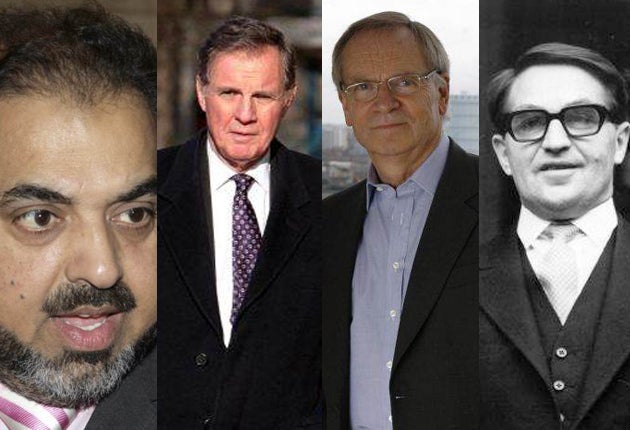Conservatives in disarray over prisoner voting

Your support helps us to tell the story
From reproductive rights to climate change to Big Tech, The Independent is on the ground when the story is developing. Whether it's investigating the financials of Elon Musk's pro-Trump PAC or producing our latest documentary, 'The A Word', which shines a light on the American women fighting for reproductive rights, we know how important it is to parse out the facts from the messaging.
At such a critical moment in US history, we need reporters on the ground. Your donation allows us to keep sending journalists to speak to both sides of the story.
The Independent is trusted by Americans across the entire political spectrum. And unlike many other quality news outlets, we choose not to lock Americans out of our reporting and analysis with paywalls. We believe quality journalism should be available to everyone, paid for by those who can afford it.
Your support makes all the difference.David Cameron is facing a backlash from his party after reluctantly bowing to a European court ruling that prisoners should be given the right to vote.
Ministers are drawing up plans to allow inmates on shorter sentences – but not the most serious offenders such as murderers and rapists – to take part in elections. In the Commons, a procession of Conservative MPs denounced the move as a surrender to Europe and urged the Government to retain the blanket ban dating back to 1870.
The controversy underlines the fault-lines within the Coalition, as the Liberal Democrats are strongly committed to giving prisoners the vote and Nick Clegg, the Deputy Prime Minister, has taken charge of the policy.
The Government faced further embarrassment last night after John Hirst, the prisoner who led the legal challenge, posted a video film of himself on YouTube celebrating the move.
Hirst, who is seen lighting what appears to be a joint and opening a bottle of champagne, says: "Murderers, rapists, paedophiles – all of them will get the vote, because it's their human right."
The European Court of Human Rights (ECHR) ruled that Britain's stance was illegal five years ago. But the previous Labour government, conscious of the political cost of giving criminals the vote, delayed falling into line.
Although Conservative ministers are equally hostile to the change, government lawyers have warned that failure to comply with the ECHR could cost hundreds of millions of pounds in legal costs and compensation. A formal announcement is due within weeks – and could be made as early as today at a hearing at the Court of Appeal.
The Prime Minister's official spokesman said: "It is an unfortunate position. It is far from ideal and I am sure people will find this difficult to understand, but we do have to take account of these court cases."
One option being studied by ministers is that offenders jailed for up to four years would be enfranchised, but "lifers" and criminals serving long sentences banned from voting. Experts, however, are divided on whether that step would be sufficient to comply with the ECHR. Inmates are likely to cast their vote in the constituencies where they last lived before conviction. But even that raises a practical problem, as many offenders do not have a settled home address.
As details of the decision emerged, the Government was forced to answer an emergency Commons question on the issue. Mark Harper, the Constitutional Affairs minister, told MPs that there was no alternative to Britain complying with the ruling: "This isn't a choice – it's a legal obligation. Ministers are currently considering how to implement the judgment."
Mr Harper, who admitted that the Prime Minister was "exasperated" over the situation, faced the anger of Tory MPs. Charles Walker, the MP for Broxbourne, said: "We have a duty to represent the people that elect us and almost to a man and woman they will be saying 'No, no, no'.
"What is the point of having a sovereign Parliament if we have to bend down to the European court on this?"
Politicians who served time
1. Nazir Ahmed
The former Labour peer served 16 days behind bars last year for texting while driving on a motorway. Minutes later he was involved in a fatal crash.
2. Jonathan Aitken
Following reports he breached ministerial rules, he quit the Cabinet in 1995 to crusade against "the cancer of bent and twisted journalism". Four years later he jailed for 18 months for perjury.
3. Jeffrey Archer
Lord Archer of Weston-super-Mare's political career ended in 2001 when he was imprisoned for four years for perjury and perverting the course of justice.
4. Joseph Kagan
The inventor of the Gannex raincoat was a close confidant Harold Wilson and helped fund his private office. In 1980 he was jailed for 10 months for stealing from his own companies.